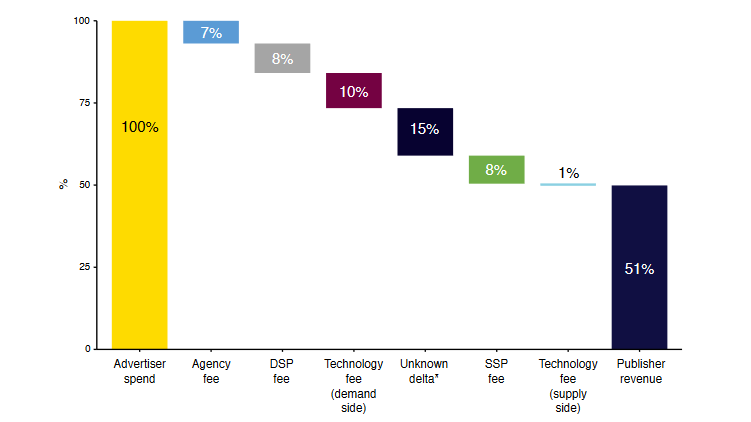What if your Google searches come back to haunt you?
FBI asked Google to turn over records on anyone who had searched for particular terms.
Welcome to the FWIW newsletter about tech, media & audio written by David Tvrdon. 🌐 Read it online and 👉 be sure to subscribe, if you were forwarded this newsletter.
In this edition
🕵️ You should check your Google searches before the FBI does
😶 Digital attitudes toward the internet & tech are pretty bleak
💬 Other tech & media news

Maybe be careful with your Google searches

📷 by Andras Vas on Unsplash
Here is the story from the Bloomberg Technology newsletter:
During former Special Counsel Robert Mueller’s investigation into Russian interference in the 2016 presidential election, Roger Stone, the veteran Republican operative and one-time adviser to President Donald Trump, was in the bureau’s crosshairs. Last year he was convicted on seven felony charges, including lying to Congress, obstruction and witness tampering.
In its investigation of Stone, the bureau’s special agents used many of the normal methods you would expect in a serious criminal case: They obtained search warrants to raid Stone’s home in South Florida, and they interviewed people close to him. They also obtained copies of his emails, Twitter messages and iCloud data.
But one thing the FBI did was unusual. According to an affidavit from Special Agent Andrew Mitchell, the bureau asked Google to turn over records on anyone who had searched for particular terms associated with the Russian hackers—”dcleaks,” “guccifer” and ‘’guccifer june.” The records allowed investigators to determine that Stone, from a computer in Florida, appeared to have searched for some of these phrases prior to the publication of the leaked emails from Guccifer and DCLeaks, indicating he had prior knowledge of their disclosure.
If you think about it, this is pretty heavy. The Bloomberg piece continues with legal experts sounding the alarm to that kind of “stalking”.
On the one hand, you have to admire the creativity of the investigators to think of obtaining evidence this way. On the other hand, does that mean whatever I typed into Google can come back to haunt me? Literally.
As Catherine Crump, assistant clinical professor of law at the University of California, Berkeley, said - “People type things into Google that they wouldn’t tell their doctors and spouses.” Yep, put me in that category.
Google refused to comment on how many times it had received similar requests.
Should you go into incognito search mode from now on? This is a good time to think about it hard.
We knew anything we type online is being stored somewhere. But the fact you can be profiled based on your search history is still a bit haunting.
Advice for free - check out your search history on Google (using this link) or go directly to your Search history (via this link).

There you can delete your activity manually or choose to delete it automatically after a certain period.

How is our relationship with tech right now?

📷 by doteveryone
There is a new report out that says fewer people (38%) think the internet has made life a lot better for them than two years ago (50%). Also, more than half think the internet should be regulated more and many believe tech companies don’t have people’s best interests in mind.
Key findings
People are taking a range of measures online that stem from their digital understanding. Most people have checked their privacy settings (73%), looked for news outside their filter bubble (67%) or used an ad blocker (56%) but people tend to take these actions only occasionally.
Nearly half (47%) feel they have no choice but to sign up to services despite concerns and 45% feel there’s no point reading terms and conditions because companies will do what they want anyway.
Over a quarter of the public (26%) say they’ve reported experiencing a problem online but that nothing happened as a result. More than half would like more places to seek help (55%) and a more straightforward procedure for reporting tech companies (53%).
Only 19% believe tech companies are designing their products and services with their best interests in mind. Half (50%) believe it’s ‘part and parcel’ of being online that people will try to cheat or harm them in some way.
You can check out the whole report over here (PDF), it’s not really positive though.
The survey was conducted in the UK just before the pandemic hit.
What I like about this study is that it not only shows the problems, it introduces recommendations on what to do.
For example, the report recommends the creation of an independent body for responsible tech which would then come up with regulations for the digital age.
Next, it recommends implementing transparent design patterns that show how services work and to give people control over them. Or another one - boost media literacy strategy. And many more good points, worthy of discussion and implementation.

In other news
TECHNOLOGY
📍 Google Maps App starts to grow again = things are returning to normalcy. Also on the app front - e-scooters are taking off big time (probably a sign that commuters are looking for new ways to commute while social distancing). [Appfigures]
🎓 Introduction to Machine Learning (for journalists). The JournalismAI initiative launched a free new online course built by journalists, for journalists. [Google News Initiative]
🏦 JPMorgan has taken Coinbase and Gemini on as clients. What does it mean? With 30+ million customers, Coinbase is the largest crypto exchange in the U.S. Gemini, a smaller exchange was cofounded by the Winklevoss twins. Basically, the bank (JPMorgan) will help them scale and bring on more “regular” customers (not ideological users). Also, in a way, it’s a sign for cryptocurrency making it another step closer to mainstream use. [Wall Street Journal]
MEDIA
💸 Earning money on Medium is tough. The platform says 61,3% of writers who put their story behind paywall earned money, only 5,4% earned over $100, which tells me there are only a few who earn a significant amount. [Medium blog]
🎧 Kids & podcasting. New research into kids audio by Hook, a content development agency based in the UK, suggests that kids expect podcasts to deliver dialogue not narrative, that’s what they see in audiobooks. A single-narrator is for audiobooks, in their minds. Also, podcasts should be funny, or at least contain humor built into the show. And they do not expect overproduced audio in stories, it confuses them. [Hook Research]
⚔️ Big Tech vs. Big Media. (Honestly, I am in the middle of those are the only choices - read my take on FWIW from the last edition) On one hand, you have the old moguls, on the other hand, the new ones. Who are you going to cheer for? In his recent piece, NYT media columnist Ben Smith argues for governments (in France & Australia) pushing against Facebook and Google. Read the piece, then read this counter piece from Jeff Jarvis, and make up your mind. [NY Times]
💢 Half of online ad spending goes to industry middlemen. [ISBA, FT.com]

🦠 Oh, and Quibi is blaming coronavirus for everything. [NY Times]


OTHER NEWS
📚 What business leaders are reading now? Among others, Susan Wojcicki, YouTube CEO, reads comedian Trevor Noah’s Born a Crime biography & Evan Spiegel, Snapchat CEO, recommends The Power of Positive Leadership by Jon Gordon. [Signal P&G]
🐜 Stay weird, internet. A million people are pretending to be ants on Facebook — and it could be therapeutic. A Facebook group is posing as an ant colony and have grown super fast. It’s actually a nice story. [NBC News]
🌴 This is an amazing story. The real Lord of the Flies: what happened when six boys were shipwrecked for 15 months. You have to read it. [The Guardian]
Catch me on Twitter or LinkedIn. Was this forwarded to you? Subscribe over here👈

